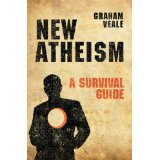Is there a proper way to go sifting through claims and separate the wheat from the chaff? Let’s talk about it on Deeper Waters.
As Christians, we are to be people of the truth, and therefore we need to check as much as we can and find out if it is true or not. If we say something that is false on a major issue at one point or something that is easily disproven, then it damages our testimony when we proclaim Christ as the risen Lord.
Of course, this also applies to too many atheists who don’t bother to do proper research either. There can easily be confirmation bias going on on both sides. Christians can too often readily believe anything if it meshes with their view of reality, such as an interpretation of Scripture. Atheists can believe many claims just because they happen to go against Christianity despite being seen as jokes in scholarship of the day.
So let’s give some tips.
First off, when you’re doing internet research, be extremely careful. Anyone can set up a blog or a web site today and look authoritative.
“Well don’t you have a blog here? Shouldn’t I be suspicious of what you say?”
Please do.
Seriously. Please do.
If you don’t think I’m a trusted authority, by all means look up what I say. If I’m wrong about something, I want to know about it and if you make a persuasive enough case with good evidence and scholarship, then I will be able to change my mind.
The source is something that must always be considered. No. This is not the same as a genetic fallacy. The claim can be right or wrong regardless of the source, but the source tells you the degree of credibility you need to give it at the start.
Want an example? Sure. Unfortunately, this is a real one. A Muslim actually posted in a Muslim debate group I used to frequent that modern scholars knew the stories about there being ancient Greek civilization were mythical. I’m not talking about Atlantis or believing in Greek gods or anything like that. I’m talking about the civilization period. This lady posted a video to show the professors talking about it.
Source?
The Onion.
For those who don’t know, the Onion is a satire. The articles are entirely jokes not meant to be taken seriously. I’d like to say this only fools crazies on the internet. I’d like to, but I’d be wrong. Huffington Post lists several examples here.
There are several sources out there like that that are satirical. Be on the lookout for them. If you read on a web site something that seems bizarre, there is no harm of just doing a simple Google search to see if the site you are reading this on is satirical.
A place Christians can often make this mistake at is end-times hysteria.
Too many things have been reported to be the Mark of the Beast and every time that they’ve been shown to be false, another one just rises up. There is a new sensation going on constantly in many dispensational circles. If you’re one of those dispensationalists who is not jumping at everything called prophecy fulfillment, I have no problem with you. In fact, I’m quite pleased that one of the best criticisms of The Harbinger is actually by a dispensationalist.
Definitely shame on you if you buy into these people that are certain they can tell you when Jesus is coming back. They can’t. They won’t. Guess what it does to the cause of Christ when people sell all they have and travel across the country proclaiming the end because of what someone like Harold Camping said?
This gets us into moving past considering the source and then really looking at the claim. A claim can seem plausible and from a source that could be reliable, but it could also be false. This kind of event happens on Facebook constantly. Someone will put up a news story and then everyone will share it and talk about it except for that one problem.
The story isn’t true.
A famous occurrence of this happening is when an email was going around several years ago about NASA finding Joshua’s last day. NASA had to respond to calls from people wanting to know more about it and unfortunately being told that the claim wasn’t true.
In politics, this can happen often. I’ve had someone in the past who would regularly email me something about Obama that was a highly negative story that would be such a great exposing of who he really was.
Except for that same problem. It wasn’t true.
And keep this in mind. Politically, I am no supporter of Obama. I am so conservative in my politics I prefer to fly on planes that have two right wings. Obama politically to me is an opponent, but if I want to expose my opponent, I want it to be on true grounds, and not false grounds. We should not want those who we are in opposition to to be spoken of falsely.
This is also why when someone says “Dr. X says such and such” you should ask some questions.
Who is this person?
What is their doctorate in?
Do they teach at an accredited university?
Are they respected in the field by those who agree with them and those who disagree with them?
Is their doctorate in a relevant field?
If those questions are answered in a way that gives credibility to the person then you need to look at the claim more. Unfortunately, too many videos that present these claims do not include proper citation. For instance, I just got done watching a video by some Christ-mythers who would say “X said this.” Where? Who knows! Rarely was anything ever said.
Christ-mythers, by the way, are excellent examples of people who do not do research. The Christ-mythers will fail in the field of NT and history at the questions above as none of them will be respected in the field by people they disagree with.
Consider Richard Carrier for instance. Carrier is highly respected and admired among internet atheists. Take that crowd away and there’s nothing. Most people in Europe have never even heard of him. Compare that to someone like N.T. Wright who teaches at an accredited university and is recognized as a top-notch biblical scholar by even his opponents.
I am interested in seeing what’s going to happen in the future for all the internet atheists who have put all their eggs in the Carrier basket.
This brings us to the next point. See what the opposition has to say. Read the best scholarship that you can on the other side. A question I often ask internet atheists nowadays is “When was the last time you read a work of scholarship that disagreed with you?”
Let’s return to the Christ-myth theory as my favorite example. How many times do I meet internet atheists who say “We don’t even know that Jesus existed.” Yeah we do. Scholarship across the board has held he does for years and theories that he did not exist have been found to be extremely lacking.
The reply will often be that these are a bunch of Christers trying to save their faith. The answer is that this is simply false. A large segment of the Society of Biblical Literature is non-Christian for instance. Bart Ehrman is a member of the SBL as are others who would say they’re atheist, agnostic, or liberal. (Some could say they’re Christian, but only in the sense that they follow the ethics of Christ without believing in anything miraculous about him.)
Also, even Christian scholars have to have their work pass peer-review. It won’t necessarily mean that their reviewers agree with their conclusion, but it will mean that they’ve shown they’ve done their research and are able to defend their view.
When you read this opposition, try to read scholarly opposition as much as you can and read it when published by an academic publisher. Of course, not everything is like that, and I say that as the co-author of two ebooks. A claim being in a non-scholarly source does not make it false, but it does mean you should always be willing to check the source of the claim and make sure that the person is interacting with the best in scholarship on the issue.
For an example of interacting with the best scholarship on the issue, consider the new atheists. The new atheists regularly have a habit of NOT interacting with the best of their opposition. I believe I have demonstrated that in this post.
By and large also, I do prefer books to videos and blog posts and such. Don’t discount those entirely, as I am a blogger after all, but try to see them as stepping stones. That’s why on my podcast I try to bring the best in scholarship and hope that it will be a stepping stone getting you to want to go look at the works of the scholars that I interview.
This also applies across the board. Don’t think I don’t practice what I teach either. Of course, I will make mistakes, but I spend plenty of time reading and studying. You can follow me on Goodreads if you want to see what it is that I’m reading. There is no such thing as being knowledgeable in the field without doing the research. There is no shortcut to learning. There are many ways to learn, but all of them require work.
Do good research. I don’t care what position you have. Just research it. In fact, I would rather talk about theology with an informed atheist more than an uninformed Christian. My standards are the same on both ends. I respect people who do the research about what they argue and know the other side well. I don’t respect those who are dogmatic on their side without doing any background research.
Be a part of the former. Study.
In Christ,
Nick Peters
Like this:
Like Loading...




